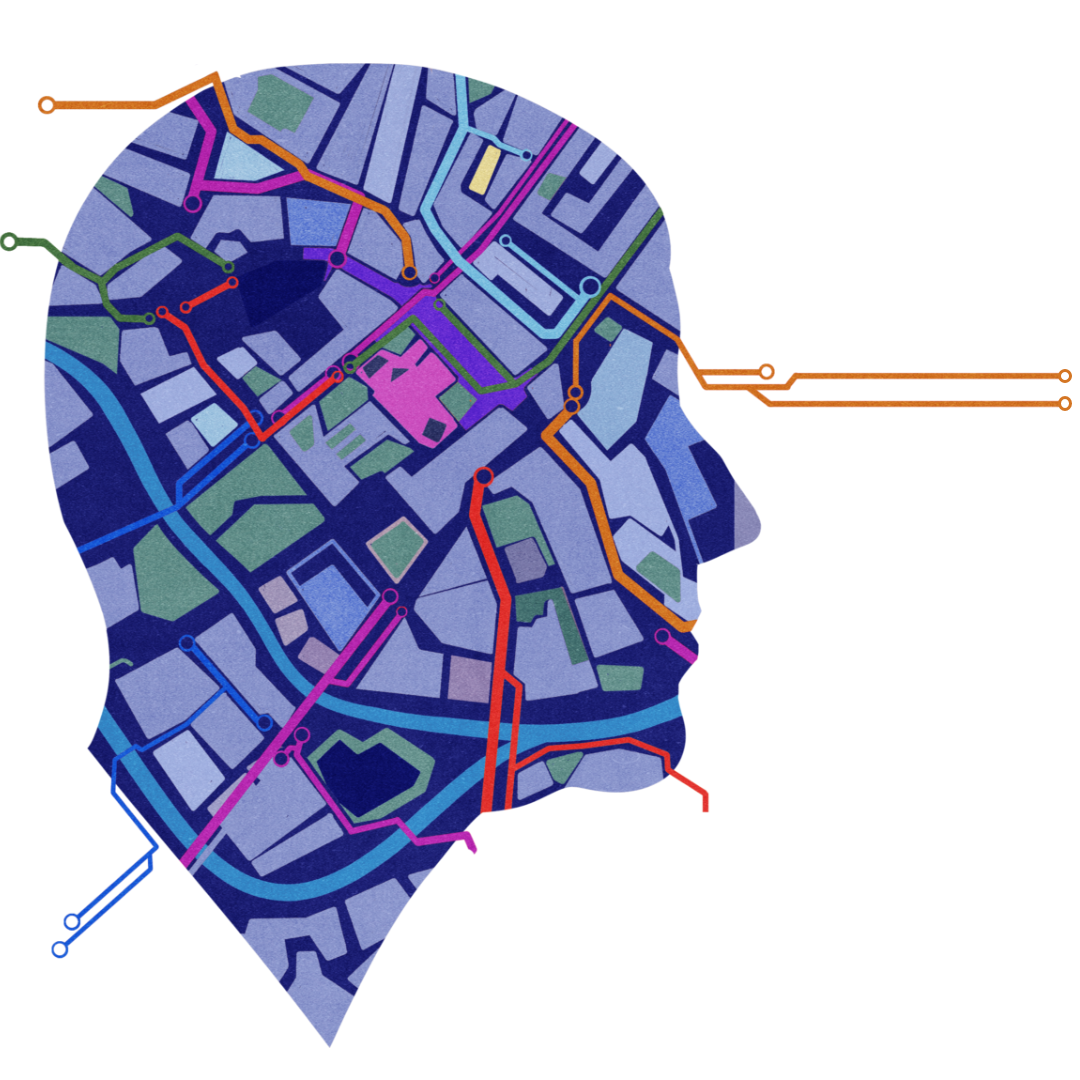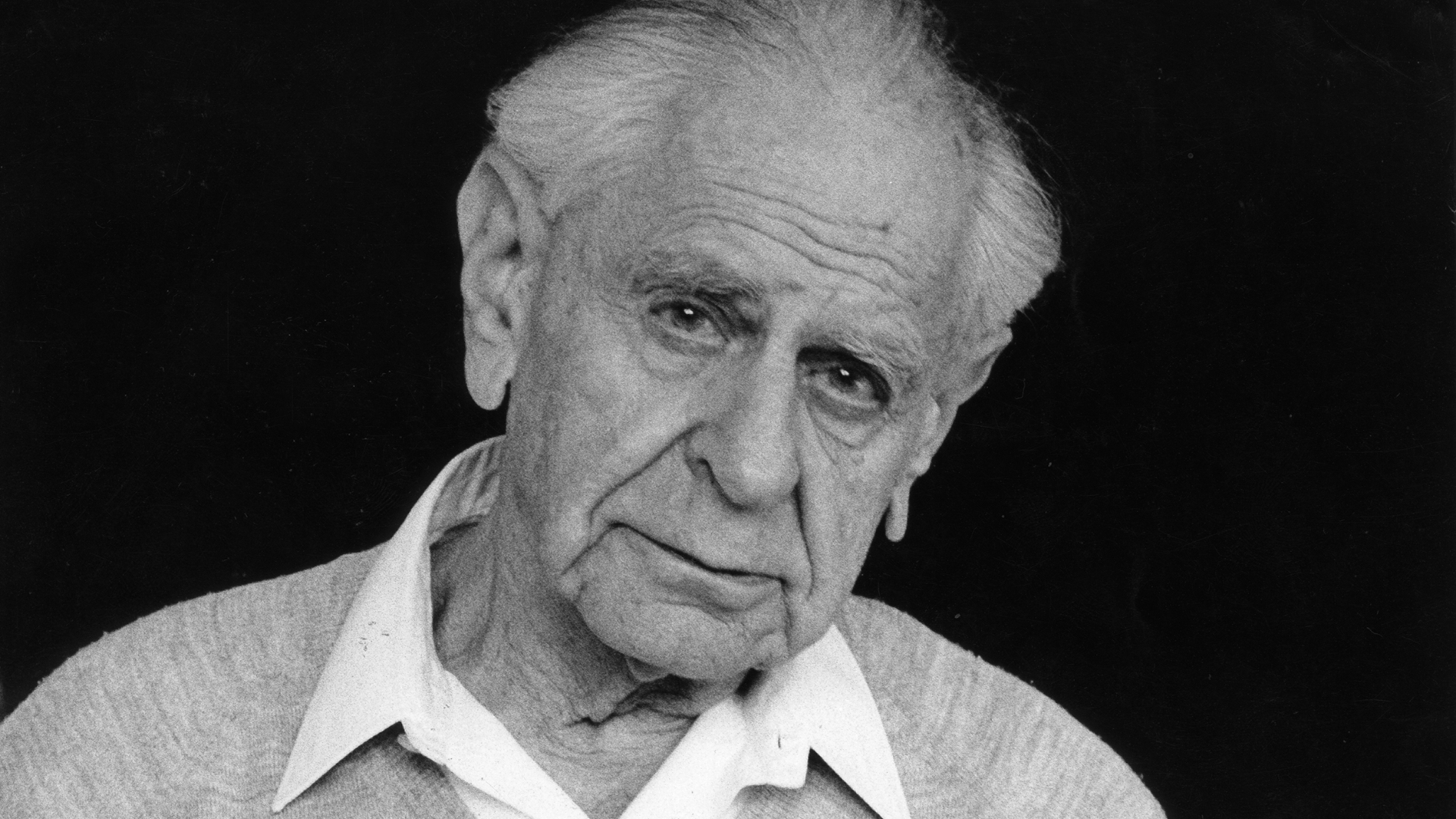
ENERGY
Berlin experiments
Germany’s capital is a test lab for the mobility of the future. Not every project is worth copying, but they all have something to teach.
Text: Daniel Zwick
Illustrations: Andrea Ucini
ENERGY
Berliner Experimente
Germany’s capital is a test lab for the mobility of the future. Not every project is worth copying, but they all have something to teach.
Text: Daniel Zwick
Illustrations: Andrea Ucini

A yellow line on the road and a few safety posts placed at regular intervals: Berlin's biggest mobility experiment of the past years – the pop-up cycle lane – is a makeshift arrangement. Largely unnoticed by the public thanks to Covid-19, the Senate and the city districts decided to reserve lanes for bicycle traffic on major streets. What ensued was political turf wars that even reached the Bundestag and legal battles going through several instances. Now, the city is turning the makeshift cycle lanes into a permanent fixture.
Urban space is being redistributed
This approach is typical of Berlin: the German capital is a testing ground for mobility solutions. While the government has defined clear targets and adopted a plan to further reduce automobile traffic, it has failed, unlike other metropolises such as London, Paris or Copenhagen, to rigorously implement this plan. Politicians at the Bundesland and district levels are slowing each other down, and the administration is short of labour and resources. At the same time, this deplorable state of affairs gives business, local politics and science the opportunity to try new approaches – such as cycle lanes, for example. On some of the streets, there was a decrease in motor traffic and an increase in bike traffic, but not everywhere. What's more, a fatal accident on Frankfurter Allee has cast a shadow over the experiment.
Andreas Knie, professor and mobility expert at TU Berlin and Berlin Social Science Center, praised pop-up cycle lanes as exemplary anyhow. “They are a good example of Berlin's potential,” he said. According to him, those bike lanes are there thanks to a form of “guerilla politics” during the pandemic. Regular projects currently being discussed on the other hand, such as the subway extension leading to BER airport, drag on for years.
Innovations are mainly to be found where the government doesn't interfere. Car-sharing, bike-sharing and e-scooter sharing firms are in fierce competition with each other, while Uber and Bolt take on taxi companies. A group of scientists at TU Berlin is developing autonomous buses that, in the test phase, are supposed to drive through Berlin's Tiergarten district. And any self-respecting corporation seems to need an “innovation lab” in Berlin nowadays, ideally with a focus on mobility. Investors are loving Berlin, too. According to calculations by Swiss investment bank UBS, between 2018 and 2021, venture capitalists ploughed about USD 1.6 billion into Berlin start-ups that focus on mobility of the future. One of those is Vay, a firm that, largely unnoticed by the public, is working on an intermediate step on the way towards autonomous driving where so-called teledrivers remotely steer the company's cars through the city. The goal is to turn it into a car-sharing provider that picks up users at their homes and takes care of parking at the end. Such a service could conceivably also succeed outside the big cities.
Even the conservative taxi industry is working to transform itself. The taxi guild is testing cars with batteries and fuel cells and is promoting a Chinese battery exchange system as an alternative to charging. Meanwhile, an initiative involving Thomas Mohnke, general contractor of Uber in Germany, is pushing for fleets to be switched to emission-free vehicles as soon as possible. All these companies benefit from the fact that the clientèle in Berlin are always ready to try new things. With the host of tech companies came a young, internationally-minded scene with people who wouldn't dream of owning a car and move around using Uber or rental bikes instead. In addition, there is a large share of single-person households and people who live close to their place of work. Commuters make up an almost negligible share of the population.
Innovations are mainly to be found where the government doesn't interfere.
A farewell to cars
Like most traffic experts, Andreas Knie is convinced that the days of car-centric cities are over. “We have too many cars,” he said. “That is the fundamental problem.” The industry is shying away from confrontation in this regard. Hildegard Müller, President of the German Association of the Automotive Industry, talks about a “co-existence of different modes of transport”. BMW concedes that, in future, urban mobility will only work if cars give back some of the space they occupy today. According to a strategist at the company, the political pressure could be alleviated by cutting back on roadside parking, i.e. urban residents giving up cars they hardly every use, anyway.
This is the goal of a radical project in the Graefekiez district of Berlin: for an initial period of six months, all roadside parking is to be eliminated; vehicles can be parked in nearby parking garages. Retailers in the vibrant neighbourhood are afraid the zones reserved for their delivery vans might be too small. Residents on the other hand are looking forward to having more space for children, plants and outdoor seating at cafes and restaurants. Even though parts of the red-green-red government are all for it, such radical solutions are hardly to be expected on the Bundesland level. Politicians can hardly go against the owners of 1.2 million cars in the city. Besides, the coalition’s goal to implement further restrictions on motorised private transport is closer than it seems. According to the Senate, from 2008 to 2018, the share of public transport, including bicycle and pedestrian traffic, already went up from 67 to 74 percent citywide. The target for 2030 is 82 percent.
Technology could help, or rather digitalisation to be more precise. The public transport company Berliner Verkehrsbetriebe offers an app that links its buses and rail-based offers with car-sharing as well as bike and e-scooter rentals. Businesses such as FreeNow, a company owned by BMW and Mercedes-Benz, are also working on such a platform: all forms of mobility with one click. “The two great traffic innovations in Berlin were the ‘Einheitsfahrschein’ (unified ticket for all forms of public transport) in 1931 and the invention of car-sharing in 1988,” said Knie. It is about time for another leap in development – for more than a few coloured lines painted on the road.

Daniel Zwick is a business editor at the „Welt“ and „Welt am Sonntag“ newspapers. He primarily writes about the structural transformation in the automotive industry and about new mobility. In Berlin, he almost always travels by bike.

Daniel Zwick is a business editor at the „Welt“ and „Welt am Sonntag“ newspapers. He primarily writes about the structural transformation in the automotive industry and about new mobility. In Berlin, he almost always travels by bike.
Also interesting

Margaret Heckel // Ökostrom per Flatrate
Der Energiepreisschock wird den Wandel zu einer klimaneutralen Wirtschaft entscheidend beschleunigen. Durchaus möglich, dass Grünstrom dann kaum mehr was kostet.

Axel Novak // „Schluss mit dem Misstrauen“
Die Bürokratielasten für kleine und mittelständische Unternehmen nehmen immer weiter zu. Sarna Röser vom Verband „Die jungen Unternehmer“ fordert ein Belastungsmoratorium und sagt, was die Bundesregierung jetzt tun muss.

Thomas Volkmann // Alles Leben ist Problemlösen
Zur Frage der Toleranz und ihren Grenzen hat der Philosoph Karl Popper zum Ende des Zweiten Weltkriegs alles gesagt.
